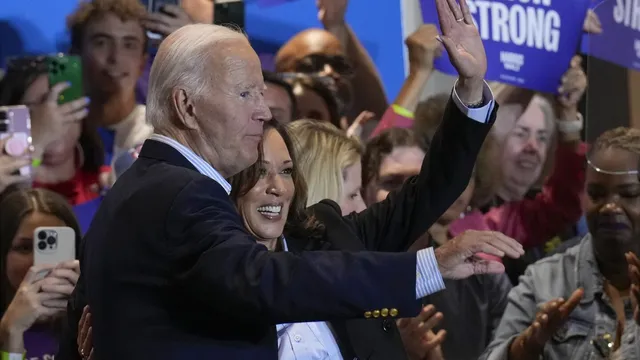
White House poised to block Nippon Steel"s US Steel acquisition
2024-09-06 13:59- The White House is signaling a likely block on Nippon Steel's acquisition of U.S. Steel as a government review concludes.
- President Biden and Vice President Harris have voiced their opposition, aligning with labor unions and emphasizing the importance of domestic manufacturing jobs.
- The stock of U.S. Steel fell by 19% following news of the potential block, highlighting market concerns about the merger's future.
Express your sentiment!
Insights
The White House is preparing to block Nippon Steel's acquisition of U.S. Steel as a government review nears completion. President Joe Biden has expressed his opposition to the merger, aligning with the United Steel Workers union, which is against the deal. This opposition is significant given U.S. Steel's headquarters in Pennsylvania, a crucial swing state in the upcoming elections, where both parties are advocating for increased domestic manufacturing jobs. Vice President Kamala Harris has also publicly opposed the acquisition, reinforcing the administration's stance. The political implications of this decision are heightened by the fact that former President Donald Trump has stated he would have blocked the merger if he were still in office. This bipartisan concern over the deal reflects broader anxieties about foreign ownership of American manufacturing. As the review by the Committee on Foreign Investment in the United States approaches its conclusion, the stock value of U.S. Steel has already dropped by approximately 19% following reports of Biden's intent to halt the merger. This decline indicates market apprehension regarding the potential fallout from the acquisition being blocked. The situation underscores the administration's commitment to protecting American jobs and industries, particularly in an election year where economic issues are at the forefront of voters' concerns. The outcome of this review could set a precedent for future foreign investments in critical sectors of the U.S. economy.
Contexts
The Biden administration is preparing to block Nippon Steel's $15 billion acquisition of U.S. Steel, citing national security concerns. This decision has sparked bipartisan opposition from lawmakers and labor unions, particularly in Pennsylvania, where U.S. Steel's operations are critical to the local economy. Concerns about foreign ownership in essential industries have intensified, with U.S. Steel's CEO warning that blocking the sale could lead to plant closures and a potential relocation of its headquarters from Pittsburgh. The United Steelworkers union has expressed skepticism regarding Nippon Steel's commitment to job security, which is vital for regulatory approval of the merger. If the acquisition is halted, Cleveland Cliffs has shown interest in purchasing the mills, gaining support from the union. This situation reflects broader anxieties about job preservation and the future of American manufacturing. Japanese officials are concerned that blocking the deal could harm U.S.-Japan relations and portray Japan as a threat, especially amid ongoing U.S. pressure on Japan regarding technology exports to China. The political implications of this decision are significant, particularly in Pennsylvania, a key swing state, where local leaders argue that the sale could protect jobs and pensions for steelworkers. As the Biden administration prepares to announce its decision, the outcome will likely have lasting effects on foreign investment in critical sectors of the U.S. economy and the stability of the steel industry.